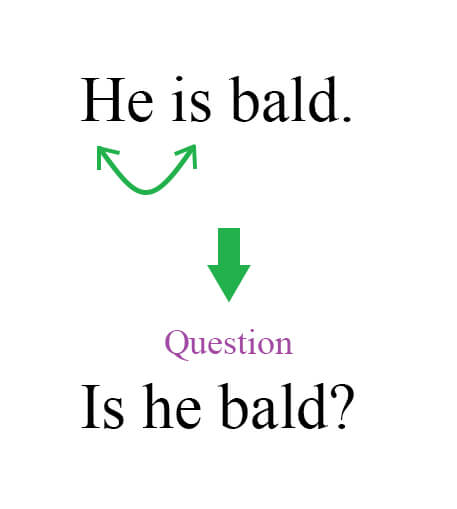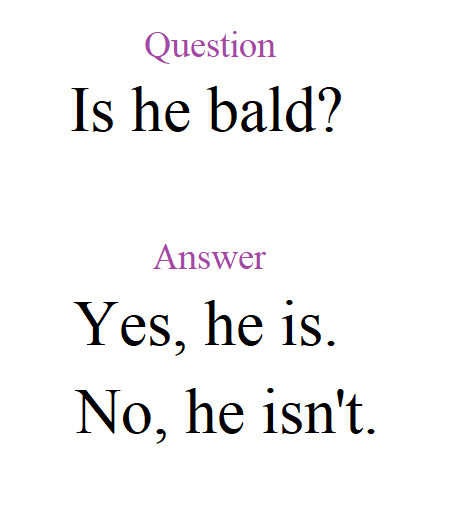Asking a Yes-No Question with an Adjective
- Yes-no questions can be formed with a subject and an adjective.
- The structure is: "Is/Are" + Subject + Adjective + ?
- Subjects can be subject pronouns, demonstrative pronouns, or "there".
- Ensure "is" or "are" matches the subject - "is" for singular, "are" for plural.
Simple yes-no questions can be formed using a subject and an adjective in English. These questions are easy to make and understand. Let's learn how to use them properly.
Yes-No Questions with Subject and Adjective
To form a simple yes-no question in English, switch the order of be verb and subject. The basic structure is: "Is/Are" + Subject + Adjective + Question Mark (?).

Examples:
-
Is the cat big?
Be verb - subject - adjective?
-
Are you happy?
Be verb - subject - adjective?
-
Is he a nice man?
Be verb - subject - adjective - noun?
With subjects like "this", "that", "these", "those" or "there", the same rule applies.
Examples:
-
Is this real?
Be verb - subject - adjective?
-
Are there many people?
Be verb - subject - adjective?
Remember to match the verb "to be" with the subject. "Is" is used with singular and "Are" is used with plural.
How to answer a Yes-no question
You can answer a Yes-No question with "Yes, (something) is" or "No, (something) is not."

Examples:
-
Is this real?
- Yes, it is.
- Yes, it is real.
-
Are there many people?
- No, there aren't.
- No, there aren't many people.
Pratiquez ce sujet avec le AI English Tutor
AI English Tutor vous apprendra la grammaire et la pratiquera avec vous sous forme de conversation. De plus, plus de 100 questions pratiques sur ce sujet pour consolider votre compréhension.
Essayez ALULA gratuitement sur votre téléphone ou votre tablette








Avez-vous des questions sur cette leçon ? Posez-les dans la section des commentaires, ci-dessous.